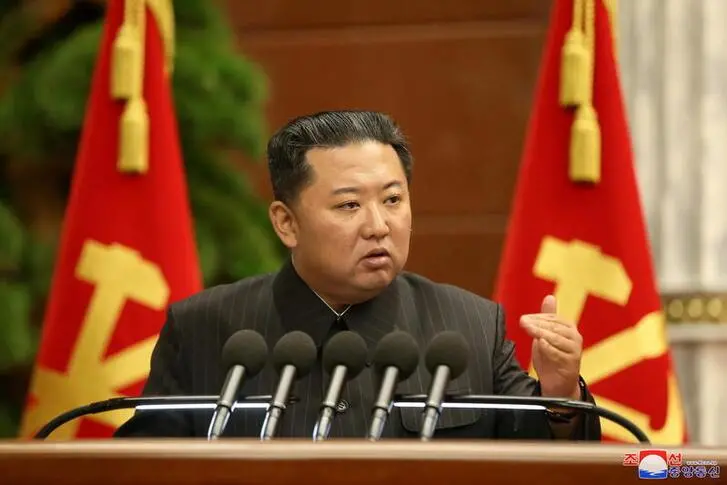PHOTO
Before the international uproar caused by North Korea’s two recent ballistic missile tests had died down, the communist government decided to push the envelope by testing a new supersonic gliding missile, which was immediately viewed as a severe new global threat.
The state-run Korean Central News Agency last week claimed that the test of what it described as a “strategic weapon of great significance” to the country’s self-defense strategy was successful. The launch of the Hwasong-8 confirmed the navigational control and stability of the missile, in addition to “its guiding maneuverability and the gliding flight characteristics of the detached hypersonic gliding warhead,” KCNA reported.
But why did this test raise general concerns and what are the repercussions of Kim Jong Un’s possession of such a sophisticated weapon?
For starters, the hypersonic glide vehicle is one of the world’s fastest and most accurate weapons that can be designed to carry nuclear warheads. Its capability to maneuver mid-flight makes it challenging to track and decreases the possibility of it being intercepted. Moreover, a reliable defense system capable of intercepting these fast-moving weapons has not yet been fully developed. Thus, most leaders view it as one of the most dangerous military threats the world is currently facing.
In theory, a fully developed missile will not be limited by geographical range, which puts every country around the globe, including the US, at risk of being targeted at record speed if the North Korean leader chose to launch an attack.
Following the breakdown of the nuclear talks between the US and North Korea in 2019 over sanctions relief and what Kim would be willing to give up in return, Pyongyang has resumed its missile development and experiments. It has continued its focus on developing its hypersonic missile system, which the communist dictator considers one of the five top priorities of his five-year strategic weapons plan.
Despite the statements and threats of the regime in Pyongyang, the world does not have complete knowledge of its true military capabilities or the credibility and accuracy of its statements. For instance, the speed and accuracy of the Hwasong-8 have not been revealed or confirmed by any independent source, which might mean that the hypersonic missile is not fully developed and the whole show was just a stunt to gain more political and diplomatic leverage.
This desire was clearly shown before the international community last week, when North Korea’s Ambassador to the UN Kim Song accused Washington of antagonizing Pyongyang for more than 70 years. While addressing the UN General Assembly, he said the reason for his country’s determination to build a nuclear weapons arsenal was the American hostility toward his government. “We have stored reliable power to defend ourselves by exerting continuous efforts, with a clear insight into the demand of the times, which necessitates us to possess sufficient might for national defense in the face of the geopolitical environment and the balance of power on the Korean Peninsula, as well as ever-straining international relations,” Song told delegates.
The North Korean diplomat also conveyed his leader’s desire to refrain from using military power against the US, South Korea and other neighboring countries.
Song preferred to avoid addressing the dire economic situation and medical crises that his country is currently facing, which threaten to destabilize the already-fragile regime.
Despite the South Korean military chief’s statement, in which he said that the new hypersonic missile is still in its initial development phase and will take a considerable amount of time to be deployed, the threat has reached a significant level that should not be taken lightly.
Kim should not be allowed to have his cake and eat it too. The time has come for the North Korean leader to recognize that he cannot dictate to the rest of the world on his own terms. He should know that building his weapons of mass destruction arsenal, while aiming to sabotage the US-South Korea alliance, is not acceptable.
Pyongyang’s violation of international sanctions requires stricter measures be imposed until the regime shows a willingness to eliminate its nuclear weapon and ballistic missile programs and takes serious steps toward this goal.
While the US administration is already swamped with several national and foreign crises, it needs to act promptly, along with its allies, to put more pressure on Kim before he manages to destabilize the security of the Korean Peninsula and the whole Northeast Asia region.
* Dalia Al-Aqidi is a senior fellow at the Center for Security Policy. Twitter: @DaliaAlAqidi
Copyright: Arab News © 2021 All rights reserved. Provided by SyndiGate Media Inc. (Syndigate.info).





















